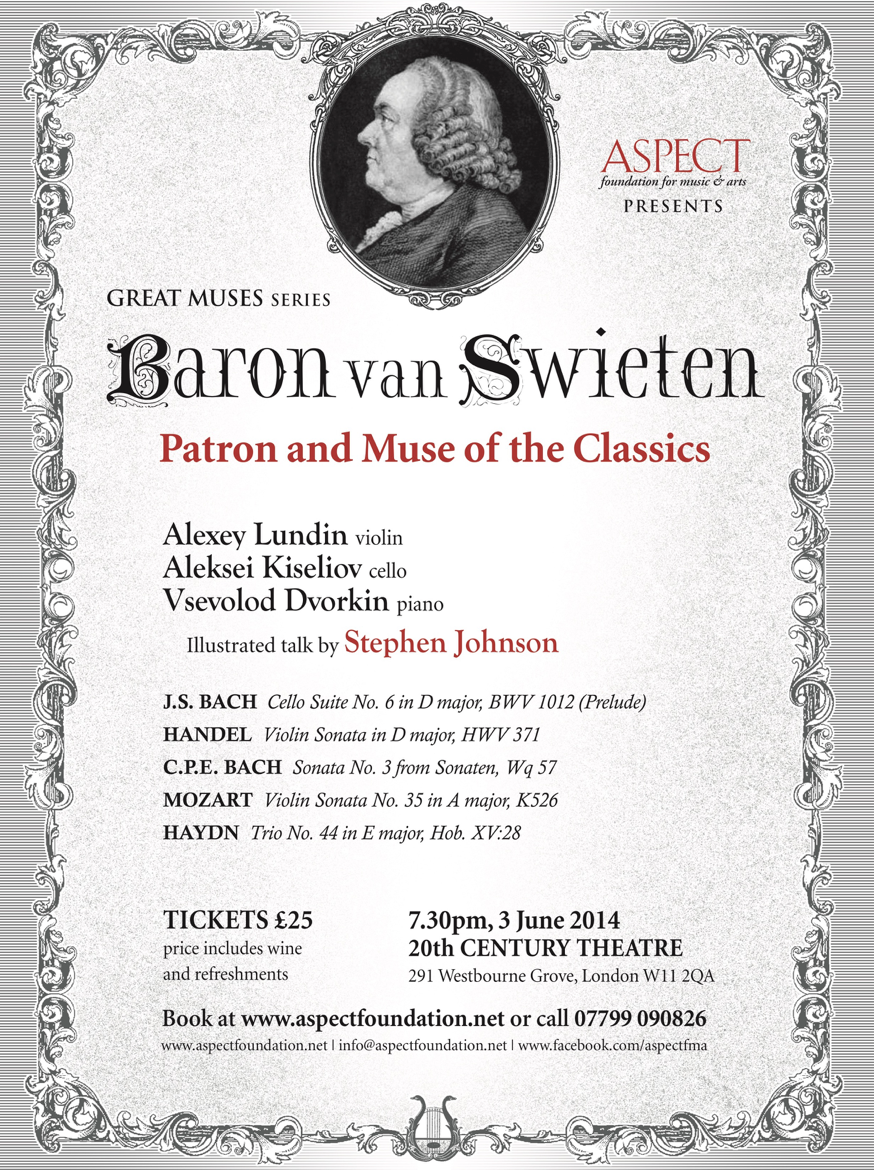BARON VAN SWIETEN: PATRON AND MUSE OF THE CLASSICS
JUNE 3, 2014
20th Century Theatre, London
Alexey Lundin violin
Alexei Kiseliov cello
Vsevolod Dvorkin piano
Illustrated talk by Stephen Johnson
J.S. Bach Cello Suite in G major, BWV 1007 (Prelude)
Handel Violin Sonata in D major, HWV 371
C.P.E. Bach Sonata No. 3 from Sonaten, Wq 57
Mozart Violin Sonata No. 35 in A major, K526
Haydn Trio No. 44 in E major, Hob. XV:28
In most music history books he’s a shadowy figure - if he’s mentioned at all. But without the Baron Gottfried van Swieten, key works by Haydn, Mozart and Beethoven would have sounded quite different. Which means that the influence of those three giants on the later development of western classical music would have been very different too.
Who was this mysterious but clearly crucial figure? By all accounts, Baron van Swieten was a mass of contradictions. Stiff in bearing, pompous and patronizing in his dealings with mere musicians, acutely, even comically aware of his own minor aristocratic status, he could also be generous, insightful and loyal. He not only paid for Mozart’s funeral, but provided much-needed financial help for the composer’s widow and children. He may have looked down his nose at Haydn and Mozart, but for their work he had nothing but respect, magisterially silencing anyone who had the temerity to talk during one of their performances.
Although his own efforts at composing were unimpressive, van Swieten’s recognition of the talents of others was unusually insightful. Apart from the three Viennese Titans, he also singled out Gluck and C.P.E. Bach. More importantly, he developed a very untypical passion for J.S.Bach and Handel, whose music was largely forgotten by the late Eighteenth Century. Van Swieten arranged and paid for performances of works by the baroque masters, and encouraged Haydn, Mozart and Beethoven to play them, study them and imitate their contrapuntal skills. The results can be heard in the thrilling fugal ending of Mozart’s Jupiter Symphony, the colossal Grosse Fuge of Beethoven and the muscular polyphonic choruses of Haydn’s Creation - for which van Swieten also compiled the libretto. However there was more to all this than technique: what van Swieten felt he was offering these great composers was ‘food for the spirit and for the heart. And as those three above-mentioned masterpieces show, he was right.





